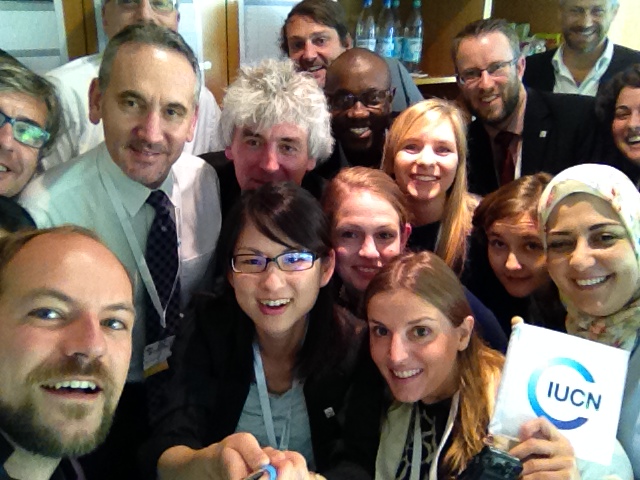From academia to international practice
Manami Watanabe takes us through her experience as Trainee with IUCN’s World Heritage Programme.

Photo: Manami Watanabe
I joined IUCN’s World Heritage Programme in February 2015 for a half-year internship as part of the partnership between IUCN and my home university, the World Heritage Studies Programme of the University of Tsukuba in Japan. The purpose of the internship is to help students experience nature conservation work at the international level, with particular focus on the work of IUCN as an Advisory Body on natural World Heritage sites, and to understand how the World Heritage Convention functions.
The 39th Session of World Heritage Committee (28th June – 8th July in Bonn, Germany) was the largest part of my work at IUCN. My role was to coordinate the IUCN delegation, side events and overall logistics at the preparation phase and during the meeting.
Coming from a cultural field and having worked in a private company in Japan, working in an international organization for nature conservation was a new and great experience. Besides developing practical working skills, I learned about the real dynamics behind the World Heritage Convention and key priorities for IUCN and natural World Heritage. It was fulfilling to take initiatives and have a major role in supporting the running of the delegation, and I am grateful for the World Heritage team’s efforts to make my experience as beneficial as possible for me.
The internship also had a very positive impact on me, as it helped me to develop the focus of my PhD research and figure out the course of my future career. Even though I am not specialized in the field of nature conservation, it allowed me to explore my strengths and think about possible professional directions and academic interests. Therefore I have a feeling the past six months at IUCN will be a turning point for the next years in my life.
I would like to recommend this internship to fellow students from diverse academic backgrounds. The partnership between IUCN and the University of Tsukuba is a great opportunity to connect academic World Heritage Studies at the regional level with the broader context of heritage and nature conservation at the international level. It helps to identify possible contributions from academia to the international and practical spheres, such as the integration of cultural and natural perspectives, which requires an interdisciplinary approach, or expertise in types of heritage sites unique to Asia.
The best part of my time at IUCN was meeting people. I enjoyed working in the open, friendly atmosphere and learning a lot from colleagues with great expertise and experiences. I would like to thank all the care and support from the people of IUCN who made this great experience possible. I hope to be further involved in heritage and nature conservation in the future and I will keep following updates on IUCN’s work when I am back in my country.



